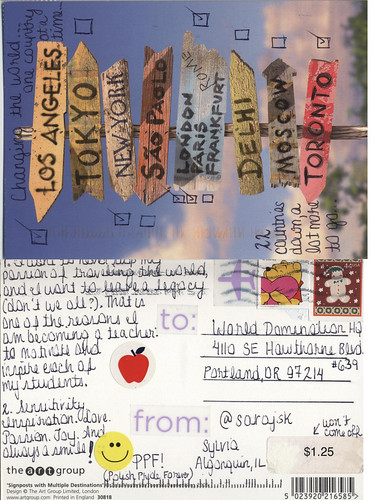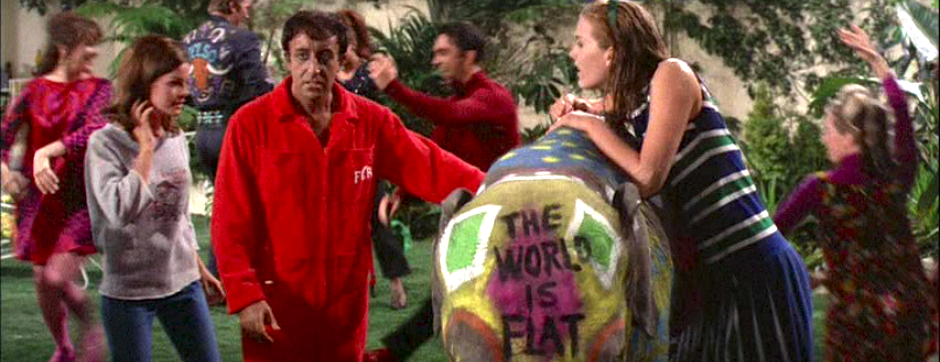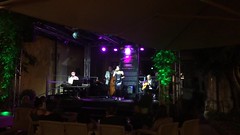A mix of a few ideas about stories being told or made:
One. At the Nobel Prize ceremony this week, Mario Vargas Llosa received the highest award for literature. Earlier, on the paper he usually writes on, he published a very nice piece on his life, his literary influences from writers, cities, and his native Peru. Read how in just one compelling little paragraph he succeeds in defining the beauty of literature and storytelling:
Quien busca en la ficción lo que no tiene, dice, sin necesidad de decirlo, ni siquiera saberlo, que la vida tal como es no nos basta para colmar nuestra sed de absoluto, fundamento de la condición humana, y que debería ser mejor. Inventamos las ficciones para poder vivir de alguna manera las muchas vidas que quisiéramos tener cuando apenas disponemos de una sola.
Those who seek in fiction what they have not, say, without saying, without even being aware of it, that as it is, life is not enough to fill our thirst for the absolute -the foundation of human condition- and that it should be better. We invent stories to live in some way the many lives we would like to have while we have just one.
{El País, Elogio de la lectura y la ficción, 8 Dec. 2010}
What I love in this quote is the little gem “without even being aware of it”. Really, we love to read or hear stories even without even being aware of our desire to transcend our lives.
Two – Chris Guillebeau has one project Post-Secret-style called The World Domination Postcard Project: send him postcards with answers to these two questions:
- What do you really want to get out of life?
- What can you offer the world that no one else can?
 See http://chrisguillebeau.com/3×5/world-domination-postcard-project/ for the address to use. You may not like the name “World Domination” but neither did China or the US gov in Afghanistan for a few months. Plus, Chris’s work is all about The Art of Non-Conformity and Authority challenging, so you get the idea: he just wants to help people develop skill to be independent and live alternative lifestyles.
See http://chrisguillebeau.com/3×5/world-domination-postcard-project/ for the address to use. You may not like the name “World Domination” but neither did China or the US gov in Afghanistan for a few months. Plus, Chris’s work is all about The Art of Non-Conformity and Authority challenging, so you get the idea: he just wants to help people develop skill to be independent and live alternative lifestyles.
Three. Robert Scoble reports an interesting way to read stories with iPad. Grab a Twitter list, perhaps from Listorious (I wonder if curated.by works, also) and drop it over Flipboard, iPad’s app of the year. I like Flipboard, even if I haven’t completely figured it out yet, because it shows my Twitter people’s rants in a magazine style. It’s something like Feedly but made for Twitter, very much real-time stuff that in a way may subsume RSS aggregators. With lists, I guess it’s like creating one (on a theme one wants to curate) and that’s it, you have a magazine! Like mashing RSS feeds on a netvibes page.
Four. The lessons learned after Wikileaks are many, but WikiLeaks is itself a king-size version of a storyteller, albeit one who doesn’t add much romanticism to the stories told. Here I just want to recap the most important issues at stake. First,the Web as we know it is at serious risk. Tim Berners-Lee’s article on Scientific American (Long Live the Web: A Call for Continued Open Standards and Neutrality) shows why. But now, to complicate matters, we have to add Amazon and PayPal to the list of companies who are not interested in net neutrality or openness. The Web’s initial freedom is lost in their genetically modified DNA, while it benefited them a lot. Sad, but the danger of losing that liberty is there. Beware, said the Jabberwocky! We may have a Web 3.0 but without all of the Web’s current richness available for free and accessible anytime, anywhere. The vendors of content are coming back.
We have also taken note of who is to trust and who is not, in the cloud. We now know that a US Senator’s phone call is enough to have Amazon abide. Abide by what? By copyright law, supposedly, given that, of course, the many GB od data leaked *must have been copied* in violation of the author’s copyright. Sure, except whatever is written by US Gov employees must have no copyright-clause attached, by law!
OK. A last lesson comes from the usual acuteness of Umberto Eco in his column La bustina di Minerva. If all that is being published from WikiLeaks was already widely known as it was, then what the fuss? Perhaps we should abolish all the secret services in the world, since, Eco adds, they can actually only collect “secret” stories that everybody already knows about! What is then their usefulness?




